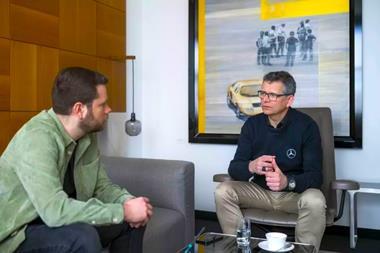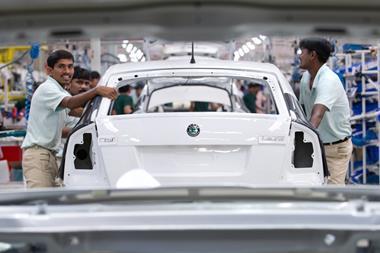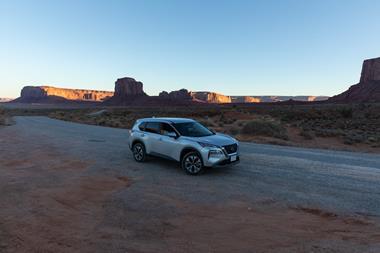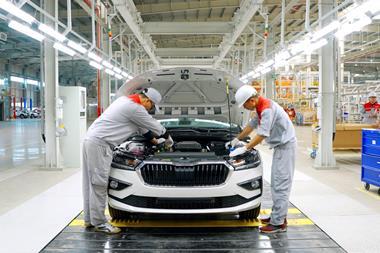Geely intends to leverage its ownership of Volvo to develop and manufacture Lynk & Co models, and introduce a new approach to sales and service. Report by Ian Henry

The new Chinese brand Lynk & Co made a big splash very quickly. When its first model, the 01, went on sale in China, 6,000 units were ordered online in less than three minutes. Lynk & Co is the fifth brand within a growing group owned by Geely. As well as its own eponymous marque in China, it has acquired Volvo, the London Taxi Company and Lotus. Its owner, Li Shifu, has also become Daimler’s largest shareholder.
Now, Geely has developed a second brand of its own, Lynk & Co - a name which Ford indicated was too close to its own Lincoln brand. Legal proceedings were expected in late 2017, but since news of this possibility emerged, it has gone quiet on the legal front. The Geely holding company, Zhejiang Geely, holds 50% of Lynk & Co shares, while the Geely Automobile and Volvo brand companies hold 25%.
Lynk & Co was launched in 2016, with Volvo helping to develop the core platform (CMA) that will underpin the brand’s initial models. Its ambition is to sell 500,000 vehicles a year by 2021 (which is around the same number as Volvo sells now), with just over half of those expected to be sold in China and the rest shared between Europe and the US. Sales began in China in late 2017; European and US sales were originally due to start in parallel towards the end of 2018, but this has been put back until early 2019 in Europe and slightly later in the US. In Europe, sales will start in Germany, especially Berlin, whereas San Francisco has been chosen at the starting point for sales in the US.
Sharing platforms
It has chosen a simple naming system with its first model – a compact SUV sharing the Volvo’s XC40’s underpinnings, its three-cylinder petrol engines, and the dual clutch used in the 40 series. The 01 is targeted especially against the Nissan Qashqai, or Rogue Sport in the US. The brand’s next models will be a small crossover called the 02, a compact sedan called the 03 and a compact hatchback called the 04. Future models will include a larger SUV and some production may be carried out in the US, suggesting the possibility that they could well be based on the larger Volvo SPA platform.
Press reports in early 2018 suggested that US production could be at Ridgeville, South Carolina, where Volvo is opening a plant later this year making vehicles on the SPA platform. Electrified Lynk & Co models will share the same plug-in stems, battery cells, electric motors and charging systems as planned for use on Volvo models.
Vehicles will all initially be based on the CMA platform developed for the 40 series Volvo models. Chinese production will be in a new factory in Luqiao, which will make Volvo 40 series models as well as Lynk & Co cars. It is widely expected that European production will take place at the Volvo plant in Belgium, but this has not yet been confirmed. A decision is expected by the end of Q2/2018.
Breaking the sales and service mould
One of the interesting aspects of this new company is that it intends, in part, to move away from traditional dealerships. Lynk & Co senior vice president Alain Visser told press in late 2016 that the old dealer-oriented model was “broken”. Internet sales are expected to account for the majority of sales, or leases, of the company’s cars, but there will be some physical space for the company and customer to interact through shopping mall outlets and pop-up stores.
Cars will be ‘owned’ through a monthly subscription, with a new model on offer after two years. In this way, Lynk & Co intends to sell cars rather like mobile phone contracts, rather than on traditional three- or five-year vehicle leases.
In addition, the company will reduce costs by offering a very limited number of trim variants, and servicing will be through either Volvo dealers (easier to work this way when using a Volvo developed platform as the models’ underpinnings) or some independent outlets. Customers will find the car delivered to their home, where it will also be collected when it needs a service.


































